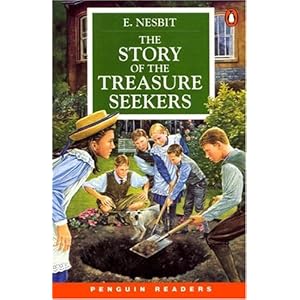My goal is to start school by 9:00 a.m. Today, we ran a bit behind. My oldest went to Collide at our church, a youth event, where he stayed up late Friday and Saturday nights, and he was still recuperating, and my youngest and I have been battling colds. We were all dragging this morning. Before school begins, the boys get dressed, make beds, eat breakfast, and brush teeth.
Tuesday, February 21, 2012
9:30-12:15 SchoolThird grade son -- 30 minutes of independent reading, Math page 22D, sit ups, push ups, stretches (preparing for Presidential Physical Fitness challenge at our co-op), skill book (long 'a' review), shoe tying practice, spelling test 23, piano practice
Seventh grade son -- Piano practice, independent reading, read ScienceSaurus 15 minutes, grammar, creative writing homework for our co-op (writing a poem about how a pencil feels to be sharpened from the pencil's point of view -- I teach his creative writing class), reviewed 25 Latin vocabulary words
Me -- During youngest son's independent reading, I started a load of laundry, ate breakfast, tidied the kitchen, checked e-mail, and got ready for the day. After that, I helped my youngest with the rest of his work, and I made lunch while he practiced piano.
12:15 - 12:40 Lunch -- homemade beanie weanies, hotdogs, apples, cheese bits (My oldest ate 2 hot dogs, a bowl of beanie weanies, half an apple, and cheese bits! Yikes! He's only 12!)
12:40-1:00 Clean-Up Time
Youngest-- made bed (he was supposed to earlier), cleaned up Legos and Hexbugs in the living room, folded washcloths
Oldest -- unpacked Collide suitcase, got out laundry from dryer, put load from washer to dryer, sorted socks and put them away
Me -- Put a load of laundry away, folded undershirts, cleaned up table from lunch
1:00 - 2:00 Reading Time -- Everyone Together
I read to both boys in the living room.
1. History: A History of US: Making Thirteen Colonies 1600-1740 by Joy Hakim, Chapter One
2. Read Aloud: Imprisoned in the Golden City: Adoniram and Ann Judson by Dave and Neta Jackson (about American missionaries to Burma in the 1800s)
3. Science: Exploring Creation with Botany by Jeannie K. Fulbright p. 43-44 Carnivorous Plants: The Venus Flytrap Family and The Bladderwort Family
4. For their spies class at our co-op, I read: Traitor: The Case of Benedict Arnold by Jean Fritz p. 70-80 (We are reading the entire book aloud. Both boys take a SPIES class at our co-op, and they are assigned two chapters a week.)
2:00 Snack and Coffee/Hot Chocolate -- because I REALLY needed coffee, and my boys are always hungry.
After snack, more school.
Youngest -- studied AWANA verses, read to mommy Third-Grade Detectives #3: The Mystery of the Hairy Tomatoes by George E. Stanley Chapter Two (I continue to have him read aloud to me so I can check for errors or concerns. Also, this aids fluency.), Phonics Pathways by Dolores G. Hiskes p. 184, Sheppard Software (online): Geography -- countries of Asia and Rivers of the US (while I watched math video with oldest because I need to watch it now that he's doing pre-algebra), Basketball -- shot 45 baskets
Oldest -- Corrected math test from yesterday, watched pre-algebra math DVD Lesson 14, did math page 14A, 10 minutes reading The Real Benedict Arnold by Jim Murphy, studied and recited Psalm 46:1-3, spelling page, Basketball -- shot 60 baskets
Third grade son finished at 3:50.
Seventh grade son finished at 4:20.
Whew! There you have it -- that's our school day! Questions? Comments? Surprised that we don't finish at lunchtime? Feel free to tell me about YOUR homeschooling day!

